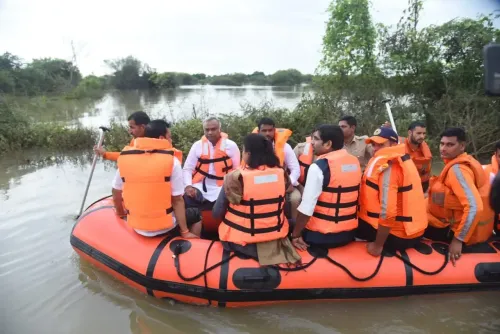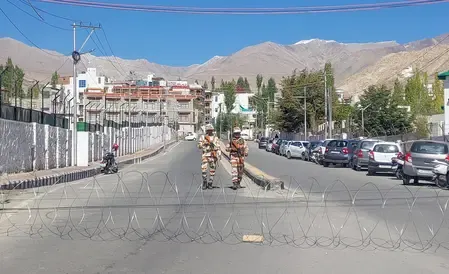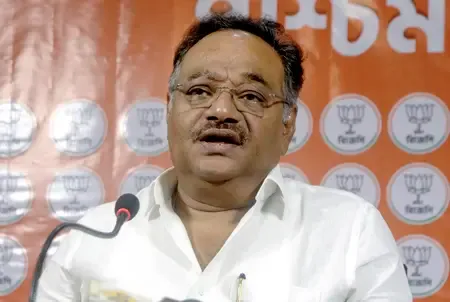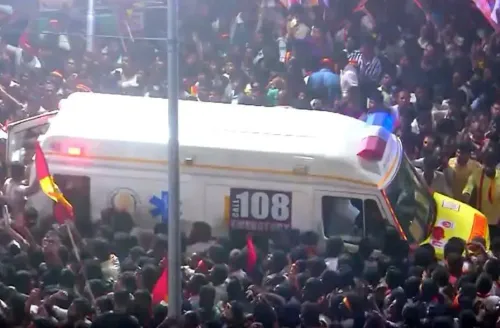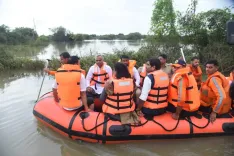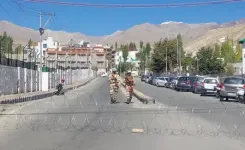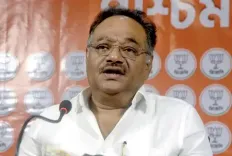What Happened to the Army Man Killed in Poonch District?

Synopsis
Key Takeaways
- An army soldier was killed in a grenade explosion.
- Investigation is ongoing to determine the cause.
- The Rashtriya Rifles are crucial in combating terrorism.
- Security forces are monitoring drug trafficking related to terrorism.
- The army secures the LoC while the BSF protects the IB.
Jammu, Sep 29 (NationPress) An army personnel tragically lost his life on Monday in a blast at the headquarters of the 16 Rashtriya Rifles located in J&K’s Poonch district.
According to officials, the soldier was fatally injured when a grenade detonated within the premises of the 16 Rashtriya Rifles in the Surankote area of Poonch district.
“The incident occurred around 7:45 p.m. today, resulting in the soldier's death. It remains uncertain whether the explosion was caused by a grenade thrown by terrorists or if it was an accidental detonation,” an official stated.
An investigation is currently underway to determine the specific cause of the explosion.
“Following the blast, the area was secured, and police along with forensic teams arrived to collect evidence,” the official added.
The police confirmed that all possibilities are being evaluated, including accidental mishandling or a technical failure of the ammunition.
The Rashtriya Rifles play a crucial role in the anti-terrorism framework in J&K, working closely with local police and the CRPF to combat terrorism in the region.
The army is responsible for securing the 740-Km long line of control (LoC), while the border security force (BSF) protects the 240-Km long international border (IB), which spans across Jammu district, Samba district, and Kathua district.
The LoC runs through Baramulla, Kupwara, and Bandipora districts in the Valley, as well as through Poonch and Rajouri districts, and partially in Jammu district.
The responsibilities of the army on the LoC and the BSF on the IB include preventing terrorist infiltration, controlling the movement of arms and ammunition into Indian territory, and addressing the drone threat from terror groups, reportedly supported by Pakistan, which are used to deliver arms, cash, and drugs for sustaining terrorism in J&K.
Furthermore, drug traffickers and individuals involved in hawala operations are also under scrutiny, as it is believed that the proceeds from these activities are utilized to fuel terrorism.

